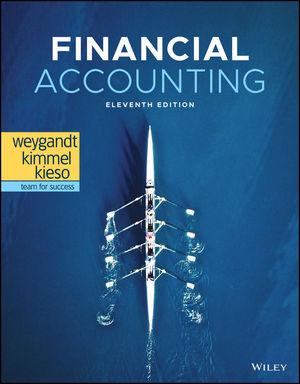Case analysis : briefly summarize the case. Focus on main points include: what are the key roles of managerial accounting system in the projects introduced in the cases? 2. Why do you think the managerial accounting system is important in the projects?
Asda case study one Recycling, general waste and bio bakery An Asda mantra, religiously repeated across all of its stores and head office, is 'We hate waste of any kind'. With 369 stores stocking over 40,000 products, it is inevitable that waste is generated. But Asda has a number of action plans to ensure that this material is disposed of in a sustainable way. For example, the supermarket is running a trial with a charity called FareShare where unsold food nearing its sell by date is distributed to those in need. But the company has also made it clear that landfill is no longer a long-term option for any additional waste. It is not a sustainable solution and with the rapid escalation of landfill tax, the finance team has demonstrated that it doesn't make business sense either. Therefore Asda has a firm commitment to send 'zero waste to landfill' by the end of 2010. As part of that strategy it has recently introduced a process whereby food that can't be sold is bulked up at its recycling centres and sent for reprocessing into bio fuels or pet food. This is now live in over 190 of its stores and will be rolled out to all stores after Christmas 2009. Asda's finance staff are key members of the team running this project, providing actual and forecast cost benefit analysis on a month by month basis which helps refine the non profitable elements and directs the successful roll out. The table below shows the model the finance team use to monitor the project. Within this model they estimate input variables and the committed store roll out numbers to derive a forecast cost benefit analysis. Not all trials are immediately successful, but Asda has a tried and tested way of perfecting a concept and, once viable, rolling it out. The finance team's part in this is to challenge an otherwise feasible project where process costs, for example, are too high. The core project team then review the process and seek ways to make the results stack up financially. This iterative approach ensures that good ideas are not wasted, and progress can still be made to deliver on the business's longer-term goals. Re-processing model used by the finance team Variables Bio bakery Recycling General waste Diverted tonnage Avg/Storey Month Avg/Store/Month Avg/Store/Month Service centre costs Avaystore/Month wa/Store/Month Avpy/Store/Month Disposal Cost/Tonne Diversion Cost/ Tonne Consummables Ave/Store/ Month Recycling bins/labels ave/store Bio bakery Recycling Jan Feb Mar Ap etc.. Feb Mar AP etc.. Dec Number of stores 21 21 21 21 294 Number of stores 294 Diverted tonnage Diverted tonnage Gross landfill savings Gross landfill savings Consumables Recycling bins/labels Service centre costs Service centre costs Total costs Total costs Net benefit Net benefit General waste Total Jan Feb Mar etc.. Dec Feb Mar Apr etc.. Dec Number of stores 294 Diverted tonnage Diverted tonnage Gross Landfill savings Gross Landfill savings Consummables/bins Service centre costs Service centre costs Total costs Total costs Net benefit Net benefit







